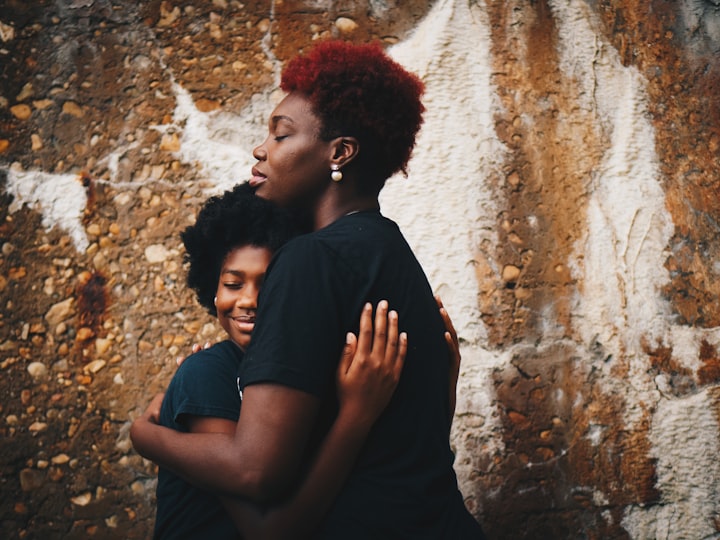Surviving As A Black and Brown Parent In A Predominantly White School System
Experience the family engagement failures that some parents endure.

I diligently promote my growing literary platform by advancing my professional mission to ignite family engagement in education.
My service in early childhood, basic, and higher education in several different instructional and leadership capacities for over 35 years has contributed to the power of my voice, my broad level of experience, and my unique perspective in this area. Because of this, I provide readers that include parents and educators among many others with research-based recommendations to increase the level of family engagement throughout various sectors and types of educational environments. I also examine authentic issues and current events that either contribute to the expansion of or the decline of parents forming genuine relationships with their child’s educational providers. Finally, my efforts also include an analysis of the benefits of family engagement for students, parents, educators, and our global village.
In addition to being an educator, I am also an only parent of a daughter enrolled in middle school. The choices that I have made about my child’s education have been made because of the challenges that I have encountered as a parent. Consequently, this article is based upon my viewpoint.
The parents of Black and Brown children enrolled in predominantly White schools experience challenges.
The Backstory Sets the Stage to Understanding Reality

A number of Black and Brown parents continuously encounter barriers when they interact with some educators within some of the schools that their children attend. This is especially relevant when the majority of students, teachers, decision-makers, and school personnel are White.
Whether school leaders, teachers, other educational employees, trustees, or board of directors, there remains an unspoken and subtle resistance that prevents a mutual partnership with diverse parents from existing. This occurs in traditional brick and mortar schools that are economically progressive and stable. This occurs in prestigious private, independent, and faith based schools that invite students to be a part of their exclusive learning community based upon predesignated and rigorous criteria. This occurs in rural schools, charter schools, and cyber schools. This problem is pervasive throughout many types of schools, but certainly not all, in the United States.
The reason why this exists is because of racism.
Thoughts About Racism in Education

I elaborated on the topic of racism in my article published in called “Color Blind Educators Block Family Engagement In Schools”. A segment of my article that defines racism in the context of schools is shown below.
“Racism has historically existed in the United States due to power and oppression. White privilege has resulted in diverse populations continuously fighting and advocating for equality and equity while white individuals reap benefits within society merely based on their race.”
Here is a link to that story.
Racist school personnel lack cultural sensitivity and cultural knowledge. Additionally, such educators are also filled with prejudice, bigotry, discrimination, bias, injustice, and inequities.
The harsh reality of racism powerfully manifests for parents of color in four profound ways.
1. Invisibility

Racist school leaders and racist teachers display a blatant refusal to acknowledge concerns related to racism that adversely impact Black and Brown parents and their children as it relates to their educational experience once they are shared with them. This happens because these educators deny to existence of racial problems. Unfortunately, this represents a form of racism known as invisibility.
The issues that parents of color present to the school are marginalized as they are ultimately considered to be unimportant.
As I have written in my previously mentioned article “Color Blind Educators Block Family Engagement In Schools”,
“…these parents are made to feel unimportant through avoidance. In the context of schools, it is a form of institutional racism because of the capacity for this social ill to remain pervasive within educational environments. Because of this, racially diverse parents will either fight to have their voices heard or they will remain defeated and will not try to use their voice for the betterment of their child’s education.”
Furthermore, these school officials
“exercise their power and dominance of Black and Brown parents by considering them as nonexistent. Authentic relationships cannot develop between these educator and parents. This means that there is no chance for a collaborative partnership to develop and grow.”
So, the unspoken message that is powerfully communicated by racist educators is that parents of color should be grateful that their children have been given the unique privilege to be enrolled at the school.
Invisibility is compounded by a veiled threat that exists if the school provides a tuition based program and gives the family grants or any type of financial assistance. There is the perception that Black and Brown parents need to remain silent by making their concerns disappear out of fear that financial help will be withdrawn. This type of racism produces the fear of retaliation.
2. Parental Suppression

Racist educators who exercise their White privilege and power cause Black and Brown parents to be the victim of suppression.
Despite their efforts to follow school wide protocols to present concerns to teachers and educational leaders to ultimately stand against what is wrong by standing for justice, these parents succumb to forced submission. The voices of suppressed parents are censored because they are powerless. It is impossible for them to transform the racism that prevails in the school into an accepting, respectful, and equitable environment for parents and students alike. Such parents are unable to effect change because they are overtaken by defeat.
3. Children Left Behind

Racist educators expect Black and Brown students to maintain their status quo that has prevailed within their school for decades. These educators remain color blind because they view all students through the same lens and devalues as well as ignores their diversity and individuality. Ultimately, any student who fails to reflect the traditional characteristics of the predominant student group is considered to possess academic, interpersonal, and behavioral deficits.
Black and Brown students fail to have a sense of cultural identity during their educational experience within the confines of these schools. Because racist educators fail to understand diversity, there is no way diverse learners are affirmed at school. The outcome is that each learner becomes a mere shadow of him or herself within these educational facilities.
There are misgivings about the delivery of instruction and academic rigor in racist schools. Educators maintain a traditional approach to learning and teaching while ignoring flexibility. There is a failure to embrace the diverse learning styles of students because all learners are viewed homogeneously. A tremendous amount of homework that especially inhibits younger students from engaging in unique learning experience at home as well as with their families through play and the development of outside interests remain the norm at many of these schools.
As previously mentioned, parents who speak out against these things are literally dismissed because of invisibility and suppression.
4. Fake Concern

Some racist school officials pretend to care about the issues Black and Brown parents have about their inability to connect with educators and the educational experiences of their children.
One of the most popular responses that racist schools resort to is to hire an individual who assumes the responsibility of leading organizational diversity initiatives. The harsh reality is that such professionals lack any power or influence to transform a school filled with blatant and subtle racism into one that is truly loving, caring, and embraces the diversity of each parents and their children. This counterfeit effort simply translates into tokenism because the position is just a symbolic one.
The lack of response clearly translates into a total lack of concern.
The Unspoken Language That Loudly Speaks

Despite the fine reputation of predominantly White schools, they are failures if they are racist and blatantly refuse to respond to the concerns of Black and Brown parents because they absolutely do not care.
The Need for Empathy

Racist educators must broaden their perspective and they must change their hearts, attitudes, and practices. Empathy facilitates this. Most significantly, compassion and responsiveness propel empathy.
As I cited in my self published book called “Repair the Broken Pieces: A System to Awaken Positive Relations Between the Family and Educational Provider Through Engagement Fusion”, I define empathy in the following way.
“This professional character trait develops the capacity of educators to truly understand the life situation of families. Empathy manifests when various instructors, school personnel, and others affiliated with the learning process make a concentrated effort to get to know their families, their unique differences, and individual characteristics…this trait opens the door to interpersonal transparency, which builds trust that is required to develop a legitimate partnership for the overall growth of the student.”
Reliable Solutions

The following question is presented in order to provide solutions this issue for racially diverse parents. This question also opens the door to robust conversations that will result in appropriate actions being taken. What should parents of color do when they cannot establish a genuine partnerships with teachers and school officials based upon mutual acceptance, trust, respect, and affirmation or have their issues addressed because racism prevails?
Here are my solutions.
1. Any parent who has an educational concern must follow the school wide procedures for reporting them. This includes adhering to the chain of command to discuss and resolve the matter.
2. If the school fails to respond to the problem, the parent should meet with educational leaders utilizing the support of a school wide, highly organized, and mission oriented parent group composed of parents who look like them and share the same concerns. This is especially compelling because there is power in numbers.
3. Despite the unified efforts to solve any problem or dispute, Black and Brown parents must embrace the reality that there is also power when powerful voices support their endeavors. Parents must have the courage to solicit the assistance of entities like special interests groups as well as the media because such groups possess the ability to make racist organizations realize how serious their failures are. Additionally, the powerful voices make the external community aware of the racism that exists within the educational system. This will build the capacity to demand and witness the much needed change within the school culture.
4. Parents should never subject themselves nor their children to racial abuse. A final and very powerful educational choice should be made to enhance the learning experience of their children as well as to improve their capacity to develop a mutual partnership with the school that is authentic and respectful. Simply stated, parents should remove themselves and their children from the toxic, racist school. More simply stated, they should place their children in another school that genuinely places a high value on the diversity of the family and the diversity of their children as they respond to concerns pertaining to them.
Conclusion

Many Black and Brown parents who have their children enrolled in schools that mostly have White students who attend experience struggles that are deeply connected to racism. The racially diverse parents are left to feel like they are insignificant and invisible members of the school community because their voices are suppressed. Another challenge that these families encounter is that their children are left behind because various obstacles block their path to success. Finally, when Black and Brown parents are given a chance to present their grievances to school officials, they are met with superficial or a fake level of concern.
This article offers viable solutions for parents to follow if their are confronted with these challenges.
Thank you for reading this article. If this story challenged your thinking about racism in education, consider sharing it on your social media platforms. Also, please consider adding a tip to help fund my work to increase family engagement.
I am also a content creator on YouTube. Be sure to visit my "Ignite Family Engagement" channel to view all my videos related to the role of parents in education. Here is the link:
Thank you.
This story was originally self-published in Age of Awareness on Medium.com.
About the Creator
Dr Deborah M Vereen
As a mom, former family and consumer sciences teacher, and school administrator, I write about parenting, family, and education topics. Visit www.Drdeborahmvereen.com to view my work as a family engagement influencer & my YouTube channel!
Enjoyed the story? Support the Creator.
Subscribe for free to receive all their stories in your feed. You could also pledge your support or give them a one-off tip, letting them know you appreciate their work.






Comments
There are no comments for this story
Be the first to respond and start the conversation.